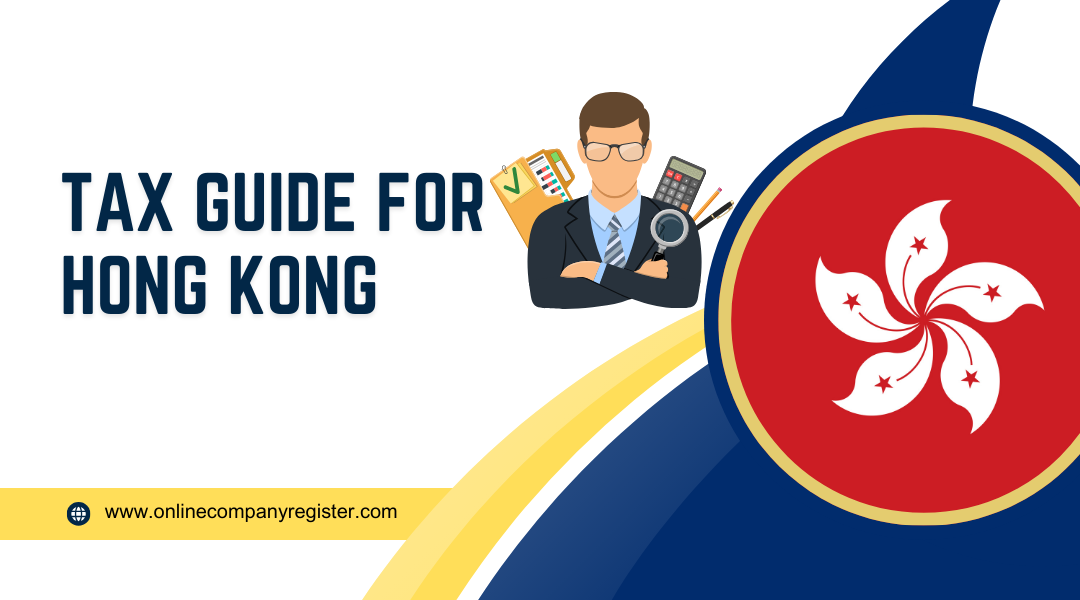Hong Kong has been known for its minimalistic corporate tax system and its business-friendly nature. The city is one of the leading financial centres in the world. It has low taxes, which makes it appealing to both foreign and domestic businesses. It employs a territorial tax system, which means only income earned within Hong Kong is taxable. This policy has enabled Hong Kong to be one of the globally preferred jurisdictions for enterprises looking to optimise their tax positions.
Unlike many other economies, there is no value-added tax or VAT, goods and services tax (GST), or even capital gains taxation in Hong Kong. There is also no withholding tax on dividends and interest payments, which further makes Hong Kong appealing to investors and corporations.
How Does Corporate Income Tax Work in Hong Kong?
The corporate tax system in Hong Kong is considered one of the most lenient in the world. Hong Kong’s tax environment is simple and offers low rates to attract business, stimulate foreign direct investment, and boost economic growth. Whereas in a lot of other jurisdictions, companies are burdened with complex tax codes and high rates, Hong Kong’s tax system is simple and clear.
Businesses are attracted to the region due to its three outstanding features:
- the tax filing system based on territory
- non-existence of common taxes
- and simple tax filing
Territorial Tax System: Only Income Sourced in Hong Kong is Taxed
The corporate tax system in Hong Kong is based on its method of taxation. Unlike the majority of nations that tax worldwide business income, Hong Kong taxes only the profits that are made within Hong Kong. Hence, Hong Kong-incorporated companies do not pay taxes on activities that are conducted outside the region, regardless of whether the company is incorporated or run from Hong Kong.
The Incomes Inland Revenue Department (IRD) determines whether income is eligible for tax relief on Hong Kong grounds by examining factors such as where contracts are negotiated or signed, where goods are produced or supplied, and where services are rendered. Such a company can be exempt from Hong Kong tax if it can satisfactorily prove that the profits were accrued through contract activities.
No Capital Gains Tax, No Dividend Tax, No Withholding Tax
Another key benefit of Hong Kong’s tax system is the absence of direct and indirect taxes that can be found in other countries. There is no capital gains tax, which means that businesses can sell their assets, shares, and even property without paying any extra tax. This feature makes Hong Kong very appealing to investors and entrepreneurs because they can maximize reinvestment options.
Simple and Transparent Tax Filing Process
Tax compliance and payment are straightforward in Hong Kong, and the system is easy to use. Other major financial centres often have complex corporate taxes; however, in Hong Kong, it is extremely simplified. Businesses in Hong Kong file a Profits Tax Return, which reports their taxable income and any deductions they can claim. The government has also introduced online filing, making the process even easier.
Ways to Operate in Hong Kong (Tax & Compliance at a Glance)
| Option | Can Trade / Tax Exposure | Pros (SEO-intent phrasing) | Cons / Caveats | Quick Verdict |
|---|---|---|---|---|
| Hong Kong Limited Company (subsidiary) | Yes. Profits Tax on Hong Kong-sourced profits at 8.25% (first HKD 2M) then 16.5%; territorial system. | Strong EEAT signals for “Hong Kong corporate tax rate”, access to R&D 300%/200% super-deduction, no VAT/GST, no WHT on dividends/interest. | Annual audit, local compliance; Pillar Two 15% minimum may apply to in-scope MNE groups; FSIE rules restrict blanket “offshore” claims on specified passive income received in HK. | Default choice for most SMEs; scalable and compliant. |
| Branch of Foreign Company | Yes. Same profits tax principles on HK-sourced profits; not a separate legal entity. | Faster market entry; may allow loss pooling at HQ; simpler disclosure in some cases. | Parent bears liabilities; fewer treaty benefits vs subsidiary in some structures; reputationally weaker than a local company. | Good for testing HK operations with head-office control. |
| Representative Office (RO) | No (promotion / research only). Typically no profits tax because trading is prohibited. | Lowest setup friction; useful for “market research Hong Kong” presence. | Cannot issue invoices, sign contracts, or earn revenue; may need nil returns and Business Registration. | Short-term presence only; convert to branch/subsidiary to trade. |
How Does Corporate Income Tax Work in Hong Kong?
Corporate taxation in Hong Kong follows a two-tiered profits tax rate system designed to provide relief to small and medium-sized enterprises (SMEs) while maintaining competitive rates for larger corporations. Under this structure, companies are taxed as follows:
- 8.25% on the first HKD 2 million of assessable profits
- 16.5% on profits exceeding HKD 2 million
For unincorporated businesses, such as sole proprietorships and partnerships, the rates are slightly lower:
- 7.5% on the first HKD 2 million of assessable profits
- 15% on profits exceeding HKD 2 million
The deemed tax structures within these regions are much lower compared with Western economies. For instance, corporate taxation in the UK and US ranges from 19 to 30 percent. In contrast, Singapore imposes a flat corporate tax of 17 percent. The two-tiered system in Hong Kong allows small businesses to take advantage of a lower initial tax rate, which diminishes their overall tax load, hence motivating them to start new enterprises.
What Tax Deductions and Allowances Can Your Company Claim?
The system of taxation in Hong Kong is designed to provide tax deductions and allowances, which help ease the burden on businesses. A variety of expenses are deductible as long as they are made toward generating taxable profits. Some of these expenses include business premises rent, salaries of employees, utility bills, advertising, and R&D expenditure.
Innovative companies can claim higher tax deductions, especially for R&D expenses. Depending on the type of research, they can get 300% or 200% super deductions on qualifying costs.
Hong Kong also allows tax deductions on registered charitable donations, which go up to 35% of the company’s assessable profits. These types of expenses help improve Corporate Social Responsibility (CSR) as well as provide aid in tax positioning. You must provide receipts and payment vouchers to verify these deductions properly. By utilising these tax allowances, companies can manage their expenses while complying with the Hong Kong tax regulations.
How to File Corporate Taxes in Hong Kong Without Facing Penalties
The responsibility of assessing tax compliance rests on the businesses themselves, and in Hong Kong, this is managed by an authority known as the Inland Revenue Department (IRD). Every business is obligated to submit tax filings every year as part of their operations. The IRD issues Profits Tax Returns on the first working day of April each year. Companies must fill them out and submit them by the end of the next working month to avoid penalties.
When a business is ready to submit its Profits Tax Return, it must have the necessary documents such as supporting paperwork, tax computation schedules, and audited financial statements. Companies can choose to file these documents physically or online through the eTAX system. Following documentation requirements is crucial, as any mistakes or missing details could lead to further scrutiny.
The IRD issues Profits Tax Returns on the first working day of April each year—handy for editorial calendars and compliance reminders.
What Special Tax Incentives Can Hong Kong Companies Benefit From?
To promote investment and stimulate the growth of industries, the Hong Kong government has rolled out multiple corporate tax programmes focused on providing support to enterprises. New startups and small to medium enterprises benefit from a profits tax system that is multi-tiered, as the first 2 million Hong Kong dollars of profit is taxed at 8.25%. In addition, grants and low-interest loans are also provided to assist new businesses.
Certain industries, such as financial services, technology, and logistics, benefit greatly from industry-specific tax incentives. To further establish Hong Kong as a global asset management centre, an industry fund exemption regime allows qualifying investment funds to have profits exempted from tax.
Companies focusing on technology are assured super tax deductions of 300% and 200% for qualifying R&D expenses, which ensures highly innovative and advancement-focused businesses receive the best tax benefits.
Final Tax Tips: How to Save Money and Stay Compliant in Hong Kong
Hong Kong stands apart as a leader in developing an attractive corporate taxation system and continues to be one of the world’s leading territories in striving for the most favourable profitability among businesses. It ensures exemption from taxes on offshore profits while only taxing business profits that are generated within its borders. Since Hong Kong does not tax capital gains, qualifying dividends, or withholding, businesses can maximize their profits and reduce tax burdens.
Both individuals and businesses in Hong Kong must manage their taxes carefully to avoid unnecessary audits by the IRD. They are responsible for meeting deadlines, filing tax returns correctly, and keeping proper records to prevent penalties. Tax exemptions and deductions, such as R&D super deductions and tonnage tax benefits, help reduce the overall tax burden and make tax management easier.




